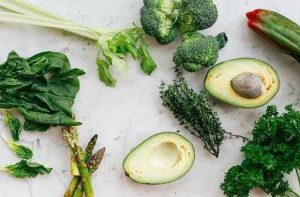5 Essential Kitchen Maintenance Tips For A Safer Kitchen

Keeping your kitchen clean and organized is about so much more than upholding the appearance of your home. A messy kitchen is a health and safety hazard. But a clean and sanitized kitchen is only one part of maintaining a safe cooking space.
So we have listed five essential kitchen health and safety tips.
Invest In A Few Cutting Boards
Sometimes less is more, but that’s never the case in a kitchen, especially when it comes to essentials like cutting boards. Using only one cutting board for all your ingredients isn’t the best idea regarding health and safety. The juices from raw meat make perfect breeding grounds for germs and dangerous bacteria.
Even though you can wash the same cutting board after each use, the only way to effectively avoid cross-contamination in the kitchen is to use more than one cutting board. With this, you can designate raw meats to one cutting board, vegetables to another, and seafood to a third cutting board.
Keep Kitchen Knives Sharp
Blunt kitchen knives pose a safety risk in the kitchen. Not only is it tricky to cut ingredients with blunt blades, but the struggle of using them increases the risk of injury. Proper kitchen knife care, as stated here, will also keep your knives in good condition for longer, so you won’t need to replace them as often.
Beyond sharpening knives routinely, it’s also vital to store knives properly with a storage block, magnetic knife holder strip, knife bag, or blade caps. Storing kitchen knives in the cutlery drawer is a quick way to damage blades and risk cutting yourself.
Never Sip And Save
Drinking liquids straight from the container or carton and putting them back in the fridge is more than an unappealing habit; sipping and saving food items is a quick way to introduce bacteria that can grow and make you sick. Always use a cup, mug, or bowl to avoid contaminating containers.
Avoid Overloading The Fridge
Cramming as much as possible into your fridge creates a major health risk. Overpacking your fridge will prevent air circulation, that’s essential to keep food items cold enough. Unfortunately, this can lead to bacteria growth. Instead of trying to jam too many items into your fridge, consider purchasing fewer grocery items or investing in a larger refrigerator.
Moreover, it’s also crucial to empty your fridge once a month to clean the shelves and compartments. Neglecting this chore can also lead to food contamination and increase the risk of food poisoning.
Store Leftovers Properly
It’s vital to store leftover foods properly in airtight containers. Many foods like chicken, pork, dairy, and others will spoil at room temperature, even if cooked. Leftovers should always be stored in the refrigerator or freezer.
Beyond proper storage, it’s also wise to reheat foods at 165 degrees Fahrenheit. These temperatures are hot enough to kill any harmful bacteria. Frozen leftovers should be defrosted in the fridge or microwave. But when defrosting food in the microwave, be sure to cook it properly right away.






